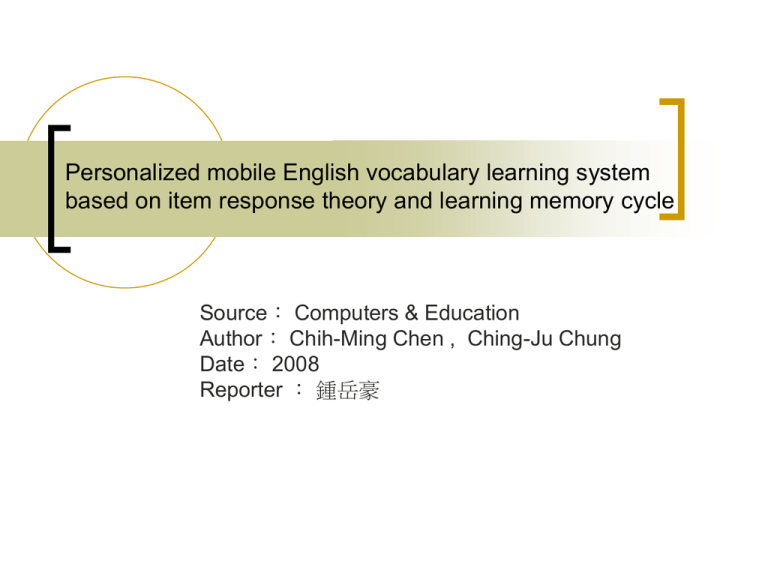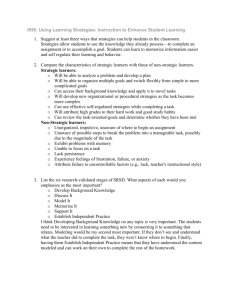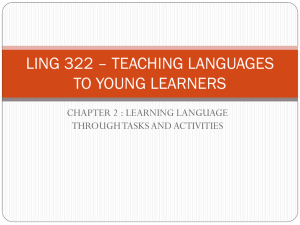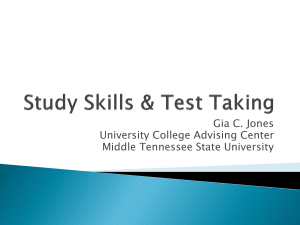Personalized mobile English vocabulary learning system based on
advertisement

Personalized mobile English vocabulary learning system based on item response theory and learning memory cycle Source︰ Computers & Education Author︰ Chih-Ming Chen , Ching-Ju Chung Date︰ 2008 Reporter ︰ 鍾岳豪 Outline 1. Introduction 2. System design 3. Experiments 4. Conclusions Introduction Huckin, Haynes, and Coady (1993) indicated that reading ability and vocabulary knowledge are two of the most important components of performance in a second language. To read English articles fluently, a learner must understand at least 2000 commonly used English words. ● TOEIC 700 UP , need 7000~10000 vocabularies Introduction Oxford (1990a) pointed out that language learners typically have significant difficulty remembering large vocabularies. The brain when information is learned, gradually disappear over time. German philosopher Hermann Ebbinghaus (1885). Ebbinghaus, based on experimental results, proposed the forgetting curve. forgetting curve Introduction Item Response Theory (IRT): It is a widely used theory in education measurement, typically applied in the field of Computerized Adaptive Testing (CAT) (Horward, 1990; Hsu & Sadock, 1985) to select the most suitable items for examinees based on individual abilities. It is a body of theory describing the application of mathematical models to data from questionnaires and tests as a basis for measuring abilities, attitudes, or other variables. (wiki) System design The client mobile learning system, which consists of three intelligent agents and three databases. ● vocabulary recommendation agent ● learning performance assessment agent ● test agent support off-line learning ● Data synchronized agent Test: System design System design System design System design System design System design Experiments 15 three-year university students who were majoring in the Department of English Teaching at National Hualien University of Education. ● two male and 13 female ● received the two hours PDA training course Experiments Time: Five weeks ● e-mail to remind Test:15 multiple-choice questions and 15 cloze questions averagely selected from three vocabulary levels of GEPT in Taiwan. Experiments Experiments Experiments Experiments Questionnaire analysis: ( questionnaire which involves 18 questions) ● the investigation of the learners’ learning attitude towards using the proposed learning system the suggestions from learners’ feedback responses ● self-assessment of learners’ English vocabulary ability ● Experiments Experiments Experiments Experiments Conclusions Experimental results demonstrated that most learners believe the review strategy is very helpful when learning English vocabulary. Personalized mobile English vocabulary learning system facilitates English learning without constraints of time or place by mobile devices.











